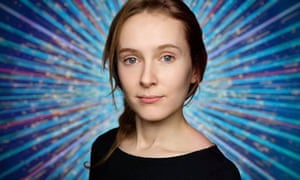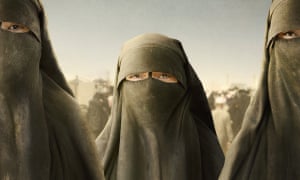Strictly’s first male couple: small steps for John Whaite, a giant leap for TV
Queer lives are increasingly visible on our screens, but with homophobia still rife the news that the former Bake Off winner will partner with a man on the show is a huge win

I know what some of you are thinking. Strictly is getting its first all-male partnership? Big deal. It’s 2021! There are LGBTQ+ relationships depicted on screen in all manner of TV shows all the time, from Emmerdale to It’s A Sin. Surely in an era where queer relationships are depicted as being everyday and normal, we shouldn’t make a fuss when same-sex couples are announced on TV shows. Right?
Wrong. Trust me on this: the news that former Bake Off winner John Whaite is to be part of the first all-male partnership on Strictly, a year after the first same-sex pairing between Nicola Adams and Katya Jones, does matter. It matters not just in terms of having LGBTQ+ lives fairly reflected on-screen, but because of the audience that watches Strictly (that is, families). In particular, those young people watching within those families, many of whom are working out their sexuality in secret and using television as a place to work out their place in the world, in the same way generations of queer people did before them. Seeing someone like Whaite (just like Adams) happy with a same-sex partner proves to them that they can have the same happy and fulfilling lives and relationships as straight people. “Just to see two men or two women dancing together, it’s not necessarily about sexuality, it’s just about intimacy and respect,” Whaite told the BBC.
The inclusion of same-sex couples on Strictly also skewers the homophobic trope that same-sex relationships are somehow inappropriate for families. Until Adams and Jones, there seemed to be a sense that showing same-sex partnerships was somehow “risky” on Strictly. There were performances that featured same-sex partners, and there would be LGBTQ+ celebrity participants in the show, but same-sex partnerships were a no-go, as if our lives and love were too much for the general public to handle. When two professional dancers, Johannes Radebe and Graziano di Prima, danced together on the show in 2019, there were almost 200 complaints from viewers who “[found it] offensive to feature two men dancing as a pair”.
I have taken part in countless radio debates about same-sex couples on Strictly over the years, always alongside another talking head who said they would not work. The same reasons would come up every time, like a broken record. First, they would say, if there are two people of the same sex, who would lead the dance (my answer: does it even matter? The celebrity is the one being judged for their ability to dance). This was almost always followed up by the belief that a same-sex couple would somehow pose “challenges” to the show, due to non-specific “technical reasons”. I always left the debates feeling sick and worn out, the underlying message being that same-sex pairings would be “too much”, “too complicated”, “not worth the faff”.
Having Adams and Jones waltz on to Strictly last year put those arguments firmly to bed. It was a joy to see them prove that same-sex couples didn’t change the show one bit, and that the world didn’t cave in. It also highlighted the sheer ludicrousness of the reasons why same-sex couples were not allowed in the first place. When Conservative MP and former Strictly contestant Ann Widdecombe reacted to Adams and Jones by telling the Sunday Times “I don’t think it is what viewers of Strictly, especially families, are looking for, but that’s up to the audience and the programme,” many people were rightly outraged. Although more than 100 people complained to the BBC about Adams and Jones’s involvement, their grievances were not investigated.
The same arguments that were used against same-sex couples being in Strictly are now the same ones being touted against same-sex couples appearing on Love Island, with one of the bosses of the reality series recently telling the Radio Times that including LGBTQ+ contestants would be “a logistical difficulty”. It is only when LGBTQ+ contestants are allowed in that everyone will see that excluding us was ridiculous in the first place. We’re not the problem – it’s people who think same-sex couples are a problem who are.
Will it be nice when we don’t have to make a fuss about same-sex partnerships on Strictly any more? Yes: but my word, we shouldn’t underestimate how important a step this is.



